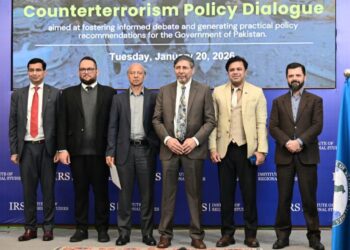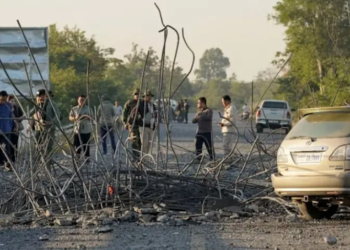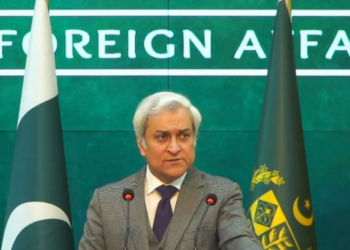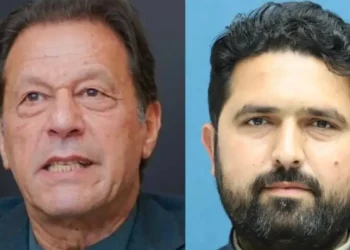By Asif Naveed
ISLAMABAD: Human rights lawyer and activist Imaan Zainab Mazari-Hazir’s husband, Hadi Ali Chattha, was arrested outside an Islamabad courtroom on Wednesday in a case linked to controversial social media posts.
During the hearing, Additional District and Sessions Judge Muhammad Afzal Majoka issued a non-bailable arrest warrant for Chattha and adjourned the proceedings until tomorrow.
Reacting to the development, Mazari posted on X (formerly Twitter), saying her husband was arrested “because Judge Majoka is insistent on committing misconduct.” She claimed that despite Hadi’s presence in court, the judge unlawfully ordered his arrest.
She also shared a photo of the court’s short order, calling it “completely illegal,” adding that there was video footage proving her husband’s presence both inside and outside the courtroom.
According to the written order, “Today the case was fixed for framing of charge and prosecution evidence. Hadi Ali Chattha accused has intentionally not appeared in court. Hence, his bail bonds are forfeited and a non-bailable warrant of arrest be issued against him.”
In a video shared by journalist Matiullah Jan, Chattha said he had attended three hearings that day but the judge refused to appear from his chambers, instead directing that an arrest warrant be issued against him.
“This is misconduct,” Chattha said, adding that it would be “great injustice” if judges refused to hold proceedings yet ordered arrests of lawyers who were present in court.
Several journalists also expressed concern over the arrest. Saqib Bashir termed it “unusual,” noting that warrants are typically cancelled when the accused appears in court. Baqi Sajjad described it as “a continuation of persecution against human rights activists.”
According to the FIR registered by the National Cybercrime Investigation Agency, Mazari and Chattha were accused of using social media to provoke linguistic divisions and suggest that Pakistan’s armed forces were involved in terrorism within the country.
The FIR alleged that both had blamed security forces for the issue of missing persons in Khyber Pakhtunkhwa and Balochistan and portrayed the military as ineffective against banned outfits such as the Balochistan Liberation Army (BLA) and Tehreek-i-Taliban Pakistan (TTP).
The case was registered under Sections 9, 10, 11, and 26 of the Prevention of Electronic Crimes Act (PECA), 2016.





































































